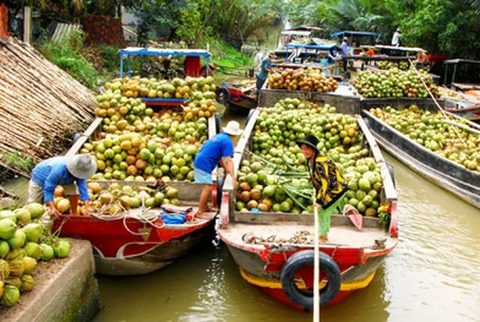The Japan International Cooperation Agency (JICA) in Viet Nam on March 12 signed a Memorandum of Understanding (MoU) with the Japan External Trade Organisation (JETRO) in HCM City and Ben Tre Province to promote Japanese investment in the province, especially in agriculture.

The Japan International Cooperation Agency (JICA) in Viet Nam on March 12 signed a Memorandum of Understanding (MoU) with the Japan External Trade Organisation (JETRO) in HCM City and Ben Tre Province to promote Japanese investment in the province, especially in agriculture.
The agreement focuses on setting up a climate-resilient agricultural value chain and aims to develop human resources for agricultural development and investment promotion, particularly through Japanese cultural exchanges and language training.
Under the MoU, a working group composed of members from the public sector, enterprises and civil society organisations in the province will be organised.
JICA has assisted Ben Tre with infrastructure projects under loan projects.
One of the projects includes Ben Tre Water Management which is tackling climate-change effects such as saltwater intrusion and shortage of freshwater by building water sluice gates and other facilities.
In addition, JICA has also provided consultancy in agricultural development policies.
In 2018, JICA and JETRO signed an MoU to offer support for Japanese enterprises’ investment activities in overseas markets.
Ben Tre is only a two-hour drive from HCM City, with an advantageous location for agro-fishery production such as coconut or shrimp farming. It has fertile soil and a mild climate, making it ideal for agriculture, especially industrial trees such as coconut, fruit and ornamental trees.
Ben Tre, which has abundant, low-cost human resources, is among the provinces that provide a large pool of apprentices for Japan.
Due to the reverse flow of saltwater into Mekong River tributaries in recent years, caused by climate change and other factors, crops with little salt resistance have been severely affected, reducing yields and fruit size. — VNS





